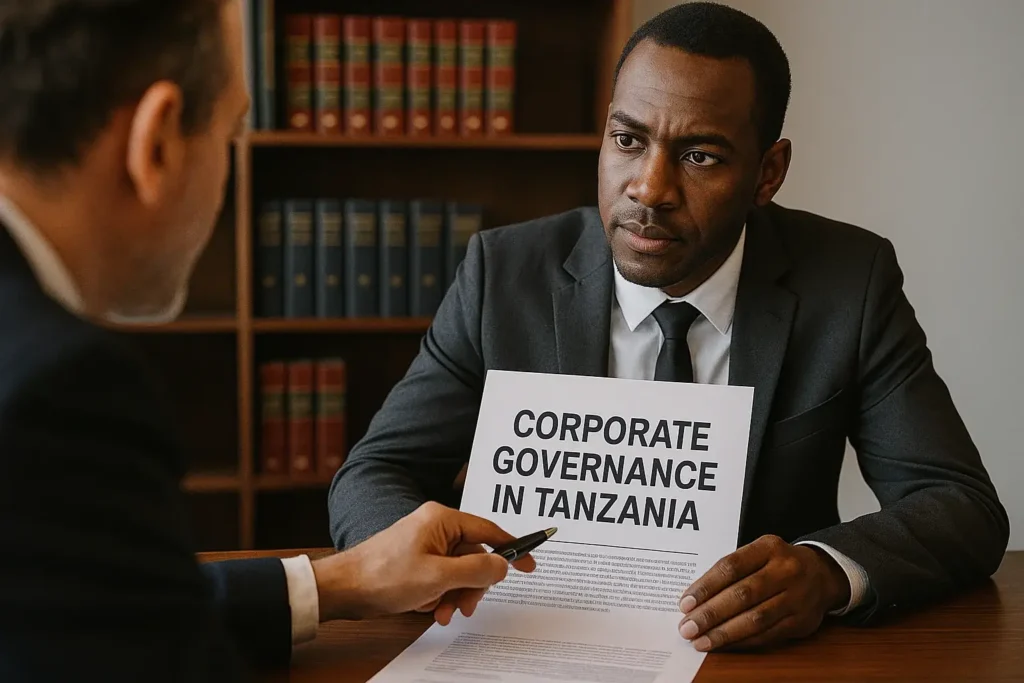
- Why M&A in Tanzania Requires More Than a Handshake and a Contract
- Pitfall #1: Incomplete or Misguided Due Diligence
- Pitfall #2: Ignoring Sector-Specific Licensing Rules
- Pitfall #3: Overlooking Tax Implications
- Pitfall #4: Immigration Oversights in Cross-Border Deals
- Pitfall #5: Weak Post-Merger Governance
- Our Advice for M&A Success in Tanzania
- Final Word: The Deal is Only as Strong as its Legal Foundation
Why M&A in Tanzania Requires More Than a Handshake and a Contract
Mergers and acquisitions in Tanzania can be an exciting pathway for business growth, foreign market entry, and consolidation of market share. Yet, in my years of practice, I have seen too many deals collapse or worse, succeed on paper but fail in reality, because investors underestimated the unique legal and regulatory environment in which these transactions take place.
M&A here is not just about two parties agreeing to exchange value. It’s about navigating a web of laws that touch on corporate governance, tax obligations, sector-specific regulations, and even immigration compliance.
Pitfall #1: Incomplete or Misguided Due Diligence
One of the most dangerous assumptions in Tanzanian M&A is that a quick review of corporate documents is “enough” due diligence.
Reality:
- Land titles linked to the business may have disputes, double allocations, or pending acquisition orders.
- Tax compliance status can be far from what’s declared in the negotiation room.
Our Approach:
At Mak Africa Legal, our due diligence is multi-layered corporate registry checks, land registry verification, environmental compliance, sector licensing review, litigation history, and tax audits. Only then do we advise whether to proceed, renegotiate, or walk away.

Pitfall #2: Ignoring Sector-Specific Licensing Rules
In Tanzania, some sectors like mining, energy, telecoms, banking, tourism have regulators with the power to block or delay M&A deals.
We have seen cases where:
- A foreign buyer acquired a majority stake in a company without meeting local ownership thresholds, forcing the deal to be restructured.
- The sector regulator declined to approve a change of control because the buyer lacked the necessary operational license.
Lesson: In Tanzanian M&A, the regulator is not a formality, they are a gatekeeper.
Pitfall #3: Overlooking Tax Implications
Tax law in Tanzania treats share sales, asset transfers, and restructuring differently, each with its own:
- Capital gains obligations
- Stamp duty
- Withholding tax on cross-border payments
Without strategic tax structuring before closing the deal, parties often face unexpected assessments that erode the deal’s value.
Mak Africa Legal’s role: We work closely with tax advisors to structure transactions in a way that minimizes liability, secures incentives where possible, and ensures compliance with the Tanzania Revenue Authority (TRA).
Pitfall #4: Immigration Oversights in Cross-Border Deals
In acquisitions where foreign executives or technical staff are part of the operational integration, immigration law is often treated as an afterthought.
In practice:
- Residence permits may not automatically transfer after a merger or acquisition.
- Key staff may be unable to work until new permits are issued.
- The Immigration Department can reject applications if they feel local expertise could fill the role.
This can derail integration timelines and damage post-merger performance.

Pitfall #5: Weak Post-Merger Governance
Closing the deal is only half the journey — the post-merger phase is where corporate secretarial services become vital:
- Filing change of directorships
- Aligning board structures with new ownership agreements
- Amending constitutions or articles of association
Failure to do so can invite shareholder disputes or regulator intervention months (or years) later.
Our Advice for M&A Success in Tanzania
- Start with legal feasibility, not just commercial interest.
Test the transaction against Tanzanian corporate, tax, and regulatory laws early. - Bring in sector-specific legal expertise.
Don’t assume a license in the seller’s name will transfer without issue. - Plan for post-merger integration from day one.
Include immigration, governance, and compliance in the M&A roadmap.
Final Word: The Deal is Only as Strong as its Legal Foundation
A Tanzanian M&A transaction can unlock incredible value but it can also become an expensive mistake without rigorous legal strategy. The most successful deals have always been those where legal, tax, regulatory, and operational considerations were addressed in unison.
At Mak Africa Legal, we provide a transactional legal shield ensuring your merger or acquisition is not just signed, but secure.
Considering an M&A Deal in Tanzania? Let’s Talk.
📧 Email: info@makafrica.com
📞 Call/WhatsApp: +255 746 954 394
🌐 Website: www.makafrica.com
Mak Africa Legal — Guiding Investments, Securing Transactions.
